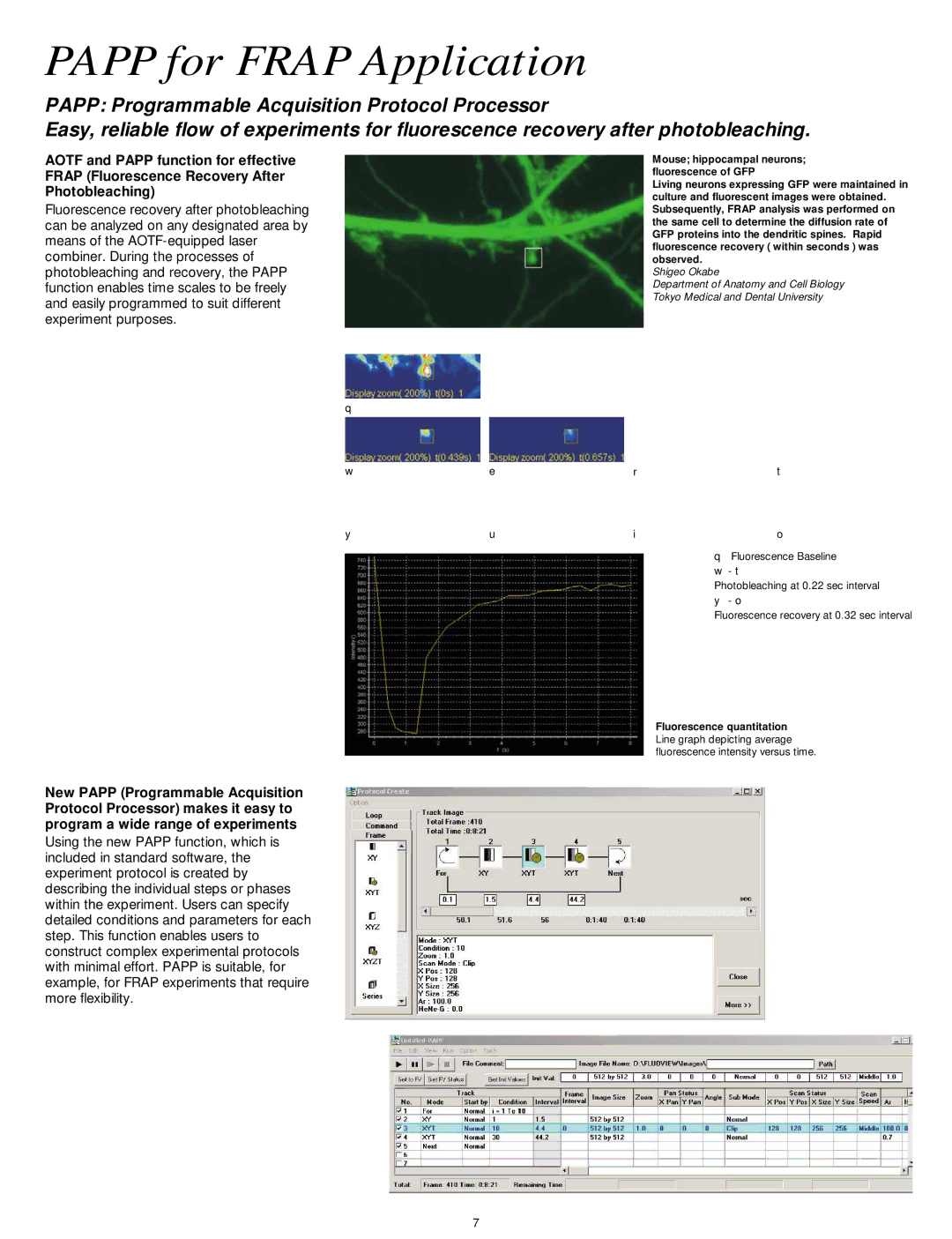
PAPP for FRAP Application
PAPP: Programmable Acquisition Protocol Processor
Easy, reliable flow of experiments for fluorescence recovery after photobleaching.
AOTF and PAPP function for effective FRAP (Fluorescence Recovery After Photobleaching)
Fluorescence recovery after photobleaching can be analyzed on any designated area by means of the
Mouse; hippocampal neurons; fluorescence of GFP
Living neurons expressing GFP were maintained in culture and fluorescent images were obtained. Subsequently, FRAP analysis was performed on the same cell to determine the diffusion rate of GFP proteins into the dendritic spines. Rapid fluorescence recovery ( within seconds ) was observed.
Shigeo Okabe
Department of Anatomy and Cell Biology
Tokyo Medical and Dental University
q |
|
|
|
w | e | r | t |
y | u | i | o |
q Fluorescence Baseline w - t
Photobleaching at 0.22 sec interval y - o
Fluorescence recovery at 0.32 sec interval
Fluorescence quantitation Line graph depicting average fluorescence intensity versus time.
New PAPP (Programmable Acquisition Protocol Processor) makes it easy to program a wide range of experiments
Using the new PAPP function, which is included in standard software, the experiment protocol is created by describing the individual steps or phases within the experiment. Users can specify detailed conditions and parameters for each step. This function enables users to construct complex experimental protocols with minimal effort. PAPP is suitable, for example, for FRAP experiments that require more flexibility.
7
